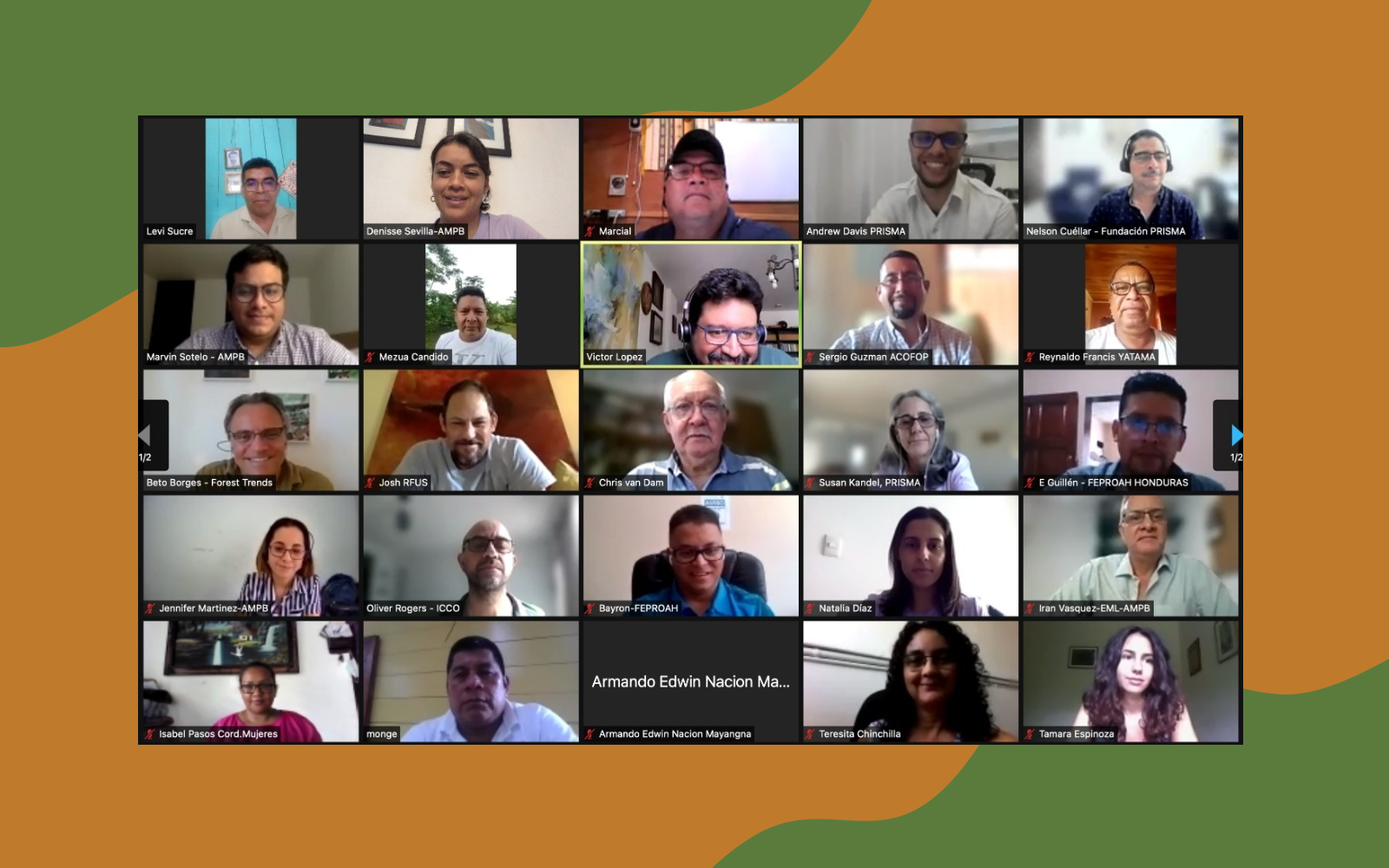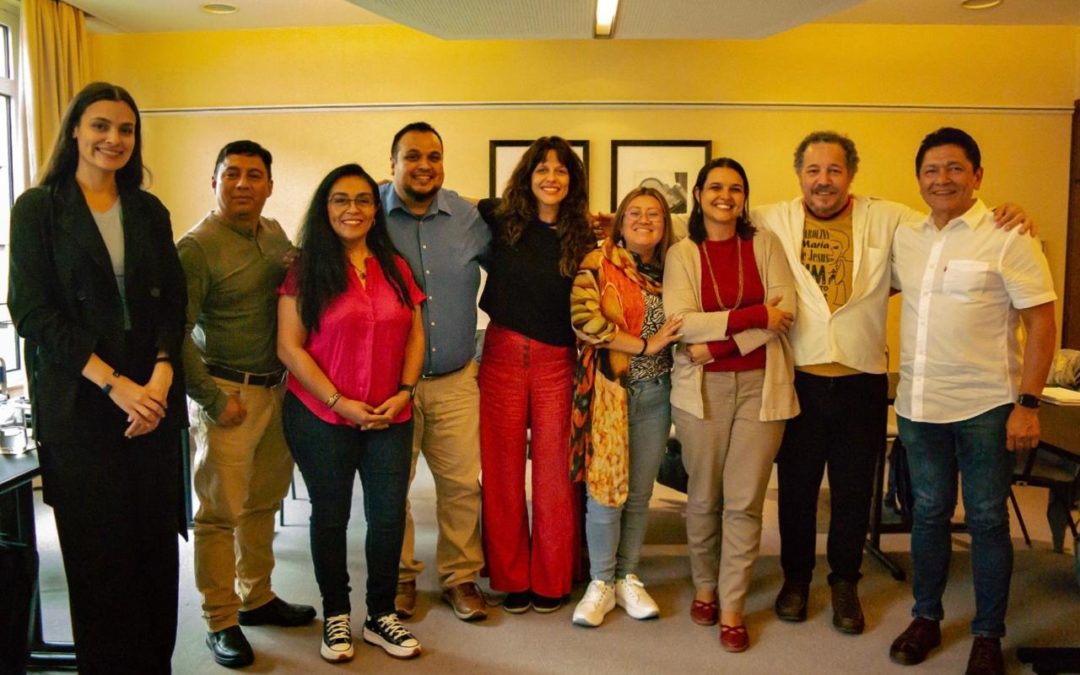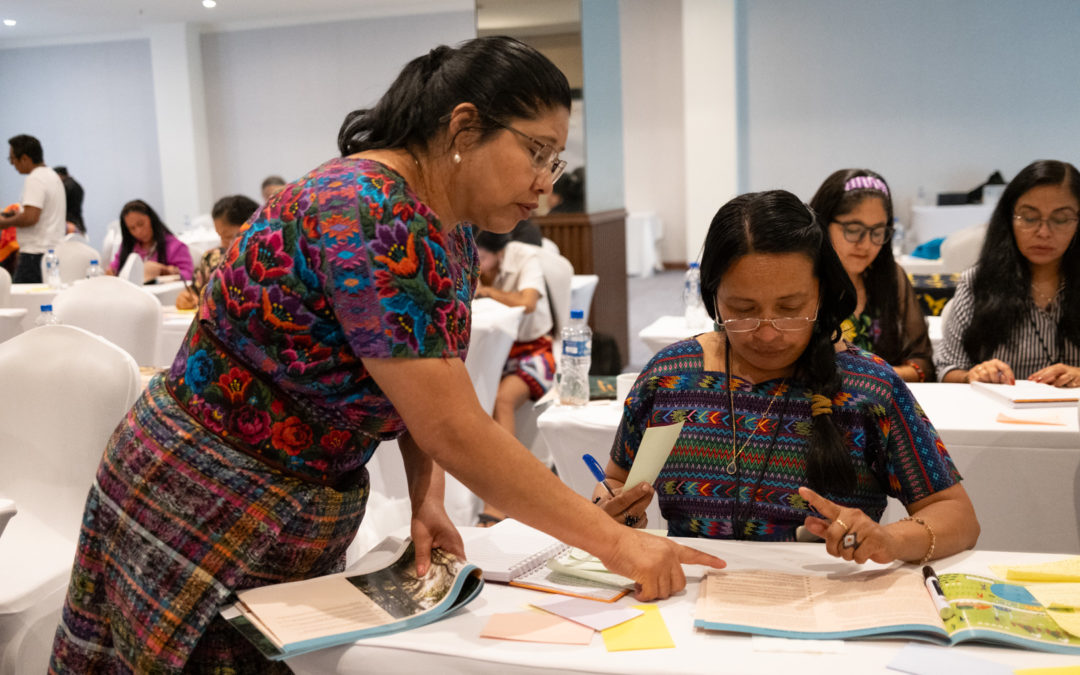On Tuesday, September 7, the Mesoamerican Alliance of Peoples and Forests (AMPB) organized a workshop with its members and allies to provide details on The LEAF Coalition program, an update on the status of national and subnational processes of the Reducing Emissions from Deforestation and Forest Degradation (REDD+) initiative in the region, and the participation of indigenous peoples and local communities.
The event discussed the status and monitoring of REDD+ processes in each country, the progress made, and the difficulties encountered. The possibility of climate finance in the territories and the evolution of this initiative in Mesoamerica over the last decade were also addressed.
“After 13 years of preparation and more than 500 million dollars invested in the preparation of REDD+, the most important part of stopping deforestation, which is the local governance arrangements in the territories, is exactly where investment has been lacking, climate finance mechanisms must land at the local level to strengthen the communities that are on the front line against the drivers of deforestation,” said Andrew Davis, research expert on issues of Forests and Territorial Governance.
“Today we had a reunion of the community environmental agenda through the territorial leaders of the members of the Mesoamerican Alliance of Peoples and Forests, we were able to identify a “scenario of lights and shadows” and this because after 10 years of being in the REDD+ discussion in Central America that we proposed from the beginning for rights, in many cases, governments have gone backward with indigenous peoples and local communities in Mesoamerica,” said Levi Sucre Romero, coordinator of the AMBP.
The second part of the workshop focused on The LEAF Coalition “Lowering Emissions by Accelerating Forest finance”, analyzing the opportunities, threats, and challenges of this program for Mesoamerica.
According to Davis, there must be financing mechanisms such as the Mesoamerican Territorial Fund that do have these concepts implicit and the need to strengthen facilities, technical and administrative capacities, natural resource management, and territorial defense, “if we are talking about stopping deforestation they have to be directed to efforts of this nature”.
“Thanks to this workshop, we were able to verify that we still have space for negotiation and proposal, that the territorial, indigenous, and community leaders of the AMPB are solid and has a solid approach to the difference of their lands and their rights, we are ready and prepared to make the new struggle of the LEAF program that comes even more to aggravate the oblivion and deliberate ignorance of governments towards respect for the rights of indigenous peoples and local communities, as well as the natural resources that we protect,” stated Sucre.
This analysis of the environmental issue and global policies concerning climate change, carried out today, provides a basis for all the work that has been done as a Mesoamerican alliance within the framework of the Global Territorial Community Alliance.
“We have been demanding rights, participation, respect, non-criminalization of leaders, territorial investment, all the issues that we have been promoting at a global level and today we consolidate it with a diagnosis that shows that the struggle is indeed on that line and that we continue working on it and, that from now on we have to rethink, new strategies for dialogue, management, advocacy with governments, not only to influence the climate funds that are already beginning to appear in the region, but also for this new LEAF proposal promoted by President Biden, which seeks to extract resources without control and respect for indigenous peoples and local communities”, commented the Coordinator of the Alliance.
The workshop was attended by AMPB member organizations, including Gustavo Sánchez and Ossiel Torres from the Mexican Network of Peasant Forestry Organizations (Red MOCAF), Amalia Hernández and Erik Guillén from the Federation of Agroforestry Producers of Honduras (FEPROAH), Sergio Guzmán from the Association of Forest Communities of Petén (ACOFOP), Reynaldo Francis from the Nicaraguan Indigenous Organization YAMATA, Eloy Frank and Aricio Celso of Nation MAYAGNA, Balbino González of the General Guna Congress, Levi Sucre of the Bribri Cabécar Indigenous Network (RIBCA), Edilberto Dogirama of the General Emberá Wounaan Congress, Hori Orlando Salanic of the National Alliance of Community Forestry Organizations of Guatemala, Norvin Goff of MASTA – Honduras, as well as the entire technical team of the AMPB.
Representatives from Wildlife Conservation Society (WCS), re:wild, Forest Trends, Ford Foundation, ICCO Cooperation, Rainforest Foundation US, and PRISMA Foundation were present on behalf of the strategic allies.
Context of The LEAF Coalition program “Lowering Emissions by Accelerating Forest finance.”
On April 22, Earth Day, in the United States Climate Leaders Summit, a new initiative was announced that aims to mobilize at least US$1 billion to reward tropical countries for halting deforestation. The program will offer significant economic incentives to protect tropical forests by selling carbon credits to prevent deforestation. Part of the goal is to prevent developing nations from choosing between ecological integrity and economic progress.
Launched by Norway, the United Kingdom, and the United States., LEAF is a public-private partnership that includes companies such as Amazon, Airbnb, Bayer, Boston Consulting Group, GlaxoSmithKline (GSK), McKinsey, Nestlé, Salesforce, Unilever, and Emergent in the United States. The Coalition’s participants will support high-quality emissions reductions from tropical and subtropical forest countries, enabling efforts to reduce and end deforestation.
For its creators and sponsors, several features of the LEAF carbon credit model make its creation a watershed moment for climate and forests, as its proponents believe it fulfills the original ambitions of the REDD+ concept.



